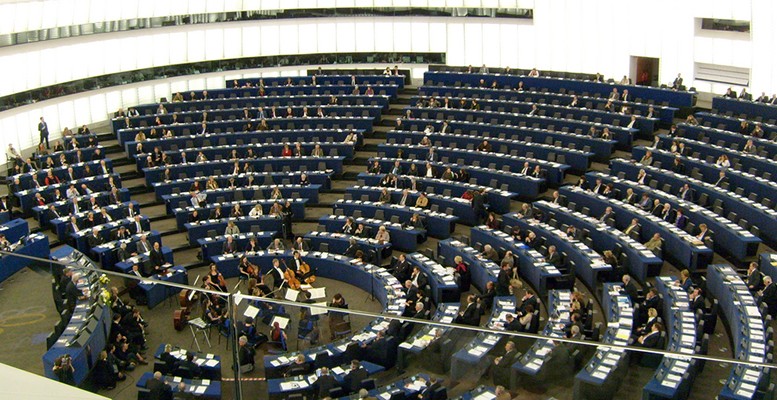via European Views | Big tech and Internet freedom activists have remained staunchly opposed to the new EU Copyright Directive.
The European Parliament adopted on Tuesday the highly controversial landmark copyright reform bill updating the EU’s 20-year-old digital legislation, which is supposed to give creators better protection but could have the effect of stifling Internet freedom.
The EU legislature approved the EU copyright reform bill by 348 votes in favor, 274 votes against, and 36 MEPs abstaining.
For it to be fully passed, the EU copyright reform bill will go back to the 28 EU member states for a final approval but the fact of the matter is that they already approved it in principle last month.
Over the past weekend, dozens of thousands of people protested in Germany, Poland, Portugal, and Austria against the planned EU copyright reform bill which they fear would spur online censorship, while the German-language version of Wikipedia went dark in protest.
“We have agreed a new set of rules which will do exactly the opposite of killing the internet,” said German EPP legislator Axel Voss, as cited by AP.
“Unfair remuneration for journalists and creators means there are less people willing to do the job, which ultimately means less quality content on the Internet,” said Voss, the main driving force behind the highly contentious.
Under the new EU copyright reform legislation, social media platforms such as Facebook and YouTube – Google, would be required to guarantee that content uploaded by users does not breach copyright rules, and would have to get licensing agreements with creators such as musicians, performers, and authors.
Platforms such as Google News would have to pay publishers for press snippets shown in search results although non-profits and encyclopedia such as Wikipedia would be supposed to be able to use the data for research and educational purposes.
At the same time, companies with an annual turnover below EUR 10 million (USD 11.3 million) would be exempt from the new EU copyright reform law.
The two most controversial clauses of the law are Article 11, which obliges search engines and news aggregators to pay for links from website, and Article 13, which holds large technology companies accountable for user generated content.
The European Parliament has said that memes – short video clips that go viral – would be “specifically excluded” from the new EU Copyright Directive but it is unknown how their exclusion might be implemented in practice.
“[The new EU copyright reform law] will not lead to censorship [but will] create legal certainty on the use of copyright-protected material,” Voss, who is from Germany’s ruling conservative CDU party, argued, as cited by DW.
He lashed out against big tech corporations, accusing them of “governance by shitstorm,” by disseminating disinformation and using money to influence public opinion.
On the opposing end, MEP Julia Reda of the German Pirate Party declared the EU copyright reform law was going to “undermine an entire generation’s trust in politics.”
“We fully support the aim of ensuring fair remuneration for creators, but this should not happen to the detriment of consumers,” said Monique Goyens, head of European consumer organization BEUC.
“There is a very high risk that the new law will do more harm than good,” the NGO head warned.
The present EU copyright law dates back to 2001, and the Luxembourg-based European Court of Justice, the EU’s highest court, has long been calling for bringing it up date.
Critics, who mostly come from tech giants and groups supporting Internet freedom, however, are appalled at the possibility that the EU copyright reform might lead to the installation of “upload filters” by the large online platforms.
Such automated software might be the only way to process and monitor huge amounts user-generated data for copyright violations, and might be very prone to error, and thus lead to the deletion of legal content, hence resulting in a rampant form of online censorship.





